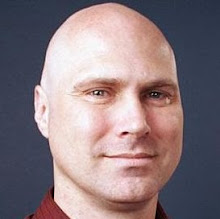
This topic is one I find myself coming back to time after time, and I’d like to reflect a little on it, if you all don’t mind. Many of you may know that I am involved with Order of the Arrow, which has as a component many Native American traditions and an appreciation of Native American culture (so yes, I guess that mean’s I am a “White Guy Boy Scout Indian”, and I have to accept the pejoratives that go with that. It’s a fact, I’m white, I have no native blood, and I am indeed a respecter and a "fanboy" of Native American culture. If that makes me a twinkie, a ya-ya, or whatever phrase such an image conjures up, so be it. I am what I am.
For many “white people” like me, our expectations of Native American’s was likely spawned by the John Ford westerns of the early to mid 20th century. In those, square jawed cowboys like John Wayne went up against blood-thirsty savages or monosyllabic villains. Occasionally, we would see a sympathetic character, but usually, it would be one that reinforced many old stereotypes. For the record, I *hated* most of these movies, and I especially hated their portrayal of First Nations peoples. To that end, I am happy that films are being made to tell more stories from the native perspective, i.e. from their own viewpoint, and being told and/or produced by native people. “Skinwalkers”, the most recent film I’ve seen from this tradition, isn’t entirely and purely a Native American production. Still it is told entirely with Native American actors and the majority of the story takes place within a Navajo reservation.
What intrigued me most about this movie (based on a Tony Hillerman book) is the fact that it shows a broad and varied patchwork of experiences for modern Navajo, and steers clear of most of the stereotypes white people would associate with them. Native people’s today do not want to freeze themselves in time. They are not a museum piece, they are a vibrant and multi-faceted people who are alive and growing and thriving, and are changing just as the world around them changes. Skinwalkers explores that dichotomy well, the cooperation, and occasional clashing, of traditional culture on one hand, and those who have had different experiences and do not necessarily want to be bound by traditional ways, and the accommodations made by all to coexist and work together.
Seeing Wes Studi in the role of Joe Leaphorn, an urban native, was an interesting contrast with the roles I most associate him with (Studi is perhaps best known to white audiences at “Toughest Pawnee” from Dances With Wolves and “Magua” from Last of the Mohicans). In these movies, Studi plays the classic 18th and 19th century Native American, with buckskins, shaved head with scalp lock, and all of the classic trappings that most white people consider the quintessential Native American to be. By contrast, Joe Leaphorn is one who has grown up and lived much of his life in a big city, away from the reservation and its traditions, and comes back due to his wife’s health and desire to return to the reservation. This is markedly different from Adam Beach’s character, Jim Chee, who has lived his life on the Navajo reservation and works and desires to serve two purposes, both that of a Tribal Police officer and that of a Navajo medicine man. The differences between these two men and their different ways of looking at the world go to the heart of the story. The film itself is calm and somewhat subdued. Dialogue is spare; neither “Chee” nor “Leaphorn” are very “talkative” characters, and as such, the actions of the film help to propel the story along.
What I liked most about this film was the fact that it was entirely a native cast. This allowed the story to be told purely from a native perspective. Add to the fact that Chris Eyre (Smoke Signals) was the director, and I think this comes very close to giving audiences a fair, clear and undistorted look at a piece of the native experience today, and shows how off the mark the white man’s interpretation is most of the time. Personally, I would be happy to see the John Ford/John Wayne “White Man's" Indian stereotype relegated to the dustbin of history, and I hope to see many more films made in the future by Native Americans that tell their story from their perspective and their experience.

1 comment:
Hey Michael!
You might be interested in checking out a Canadian TV series called "North of 60." I think you might enjoy it.
(Oh, and you can't get my blog to roll because it's an invite-only, and you're one of the special people.:)
Post a Comment